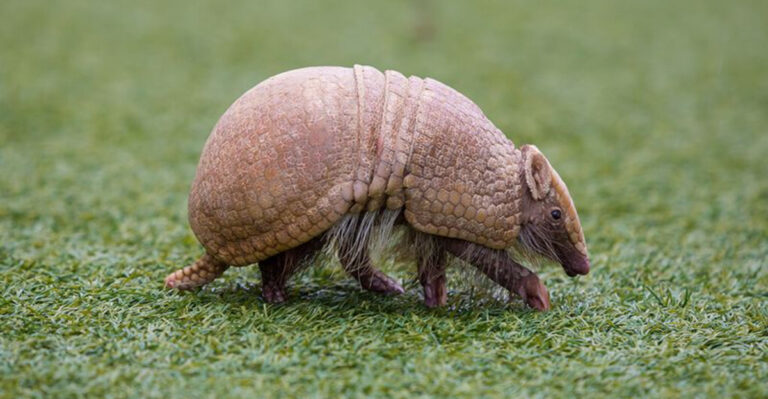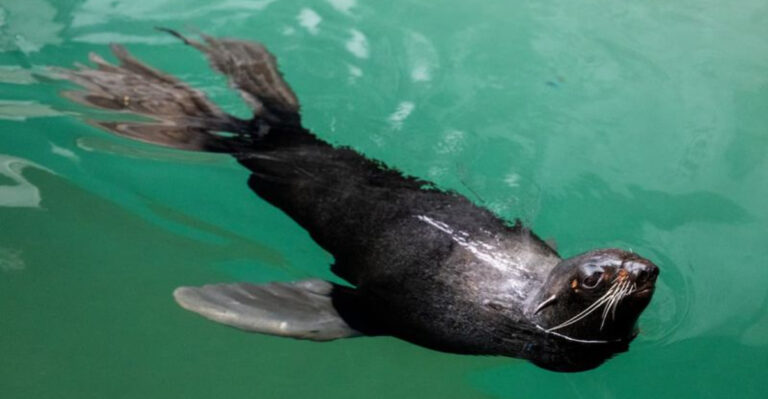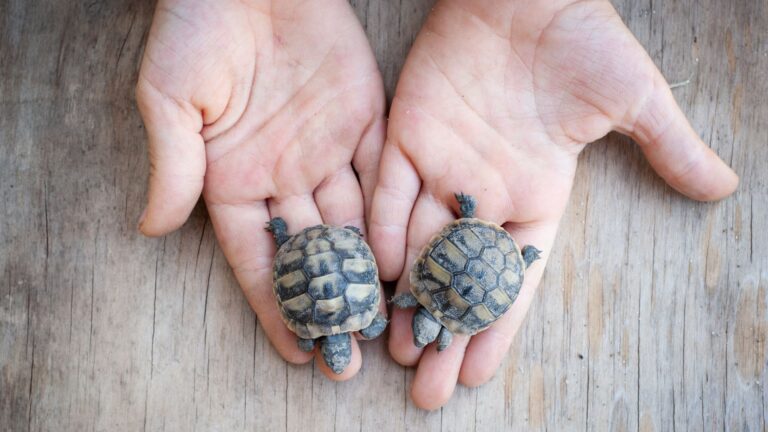17 Must-Know Tips To Properly Care For Your Chinchilla
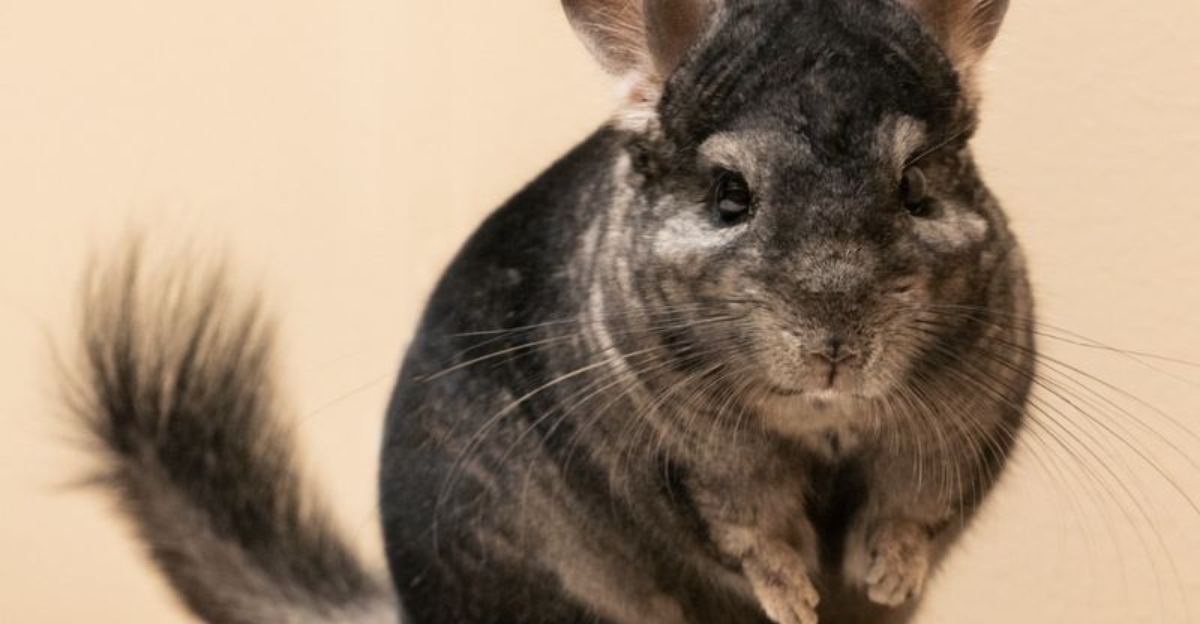
Chinchillas are delightful, fluffy companions that require special care to thrive. Whether you’re a new chinchilla owner or a seasoned enthusiast, understanding their unique needs is crucial for their happiness and health.
With their distinctive personalities and playful nature, these little creatures can bring joy to any home. From habitat setup to dietary needs, we’ve got you covered with practical advice and fun insights.
1. Understanding Chinchilla Communication
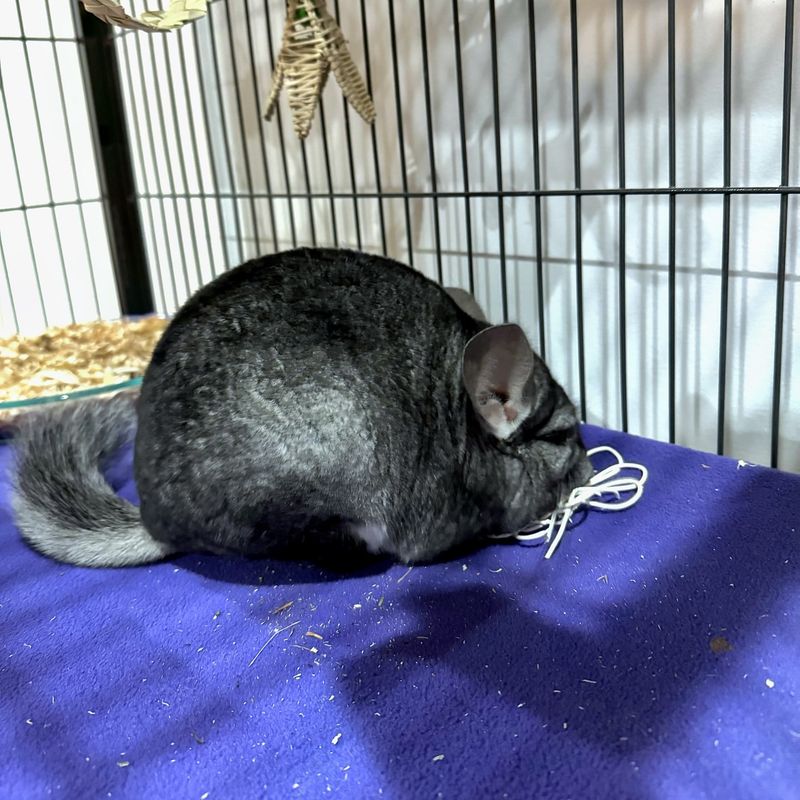
Chinchillas communicate through a range of vocalizations and body language. Understanding these signals is vital for building a strong relationship with your pet. They may make soft cooing sounds when content or emit a warning bark if startled.
Pay attention to their postures, such as upright ears when curious or hunched bodies when frightened. Familiarize yourself with these cues to respond appropriately to their needs.
2. Balanced Diet And Nutrition
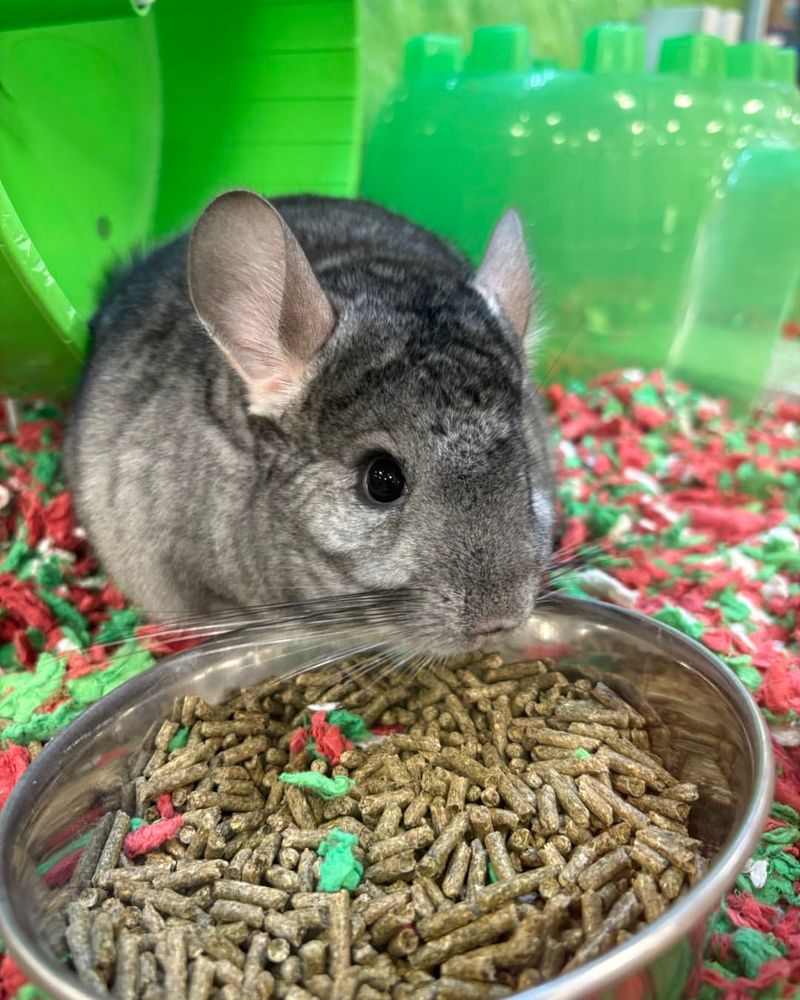
Feeding your chinchilla a balanced diet is crucial for its health. High-quality chinchilla pellets and fresh hay should form the core of their diet. Hay provides necessary fiber and helps in wearing down their continuously growing teeth.
Occasionally, you can offer treats like dried fruits, but moderation is key. Raisins are a popular choice, but limit them to one or two per week. Fresh vegetables can also be given but ensure they are washed and free from pesticides.
3. Regular Dust Baths
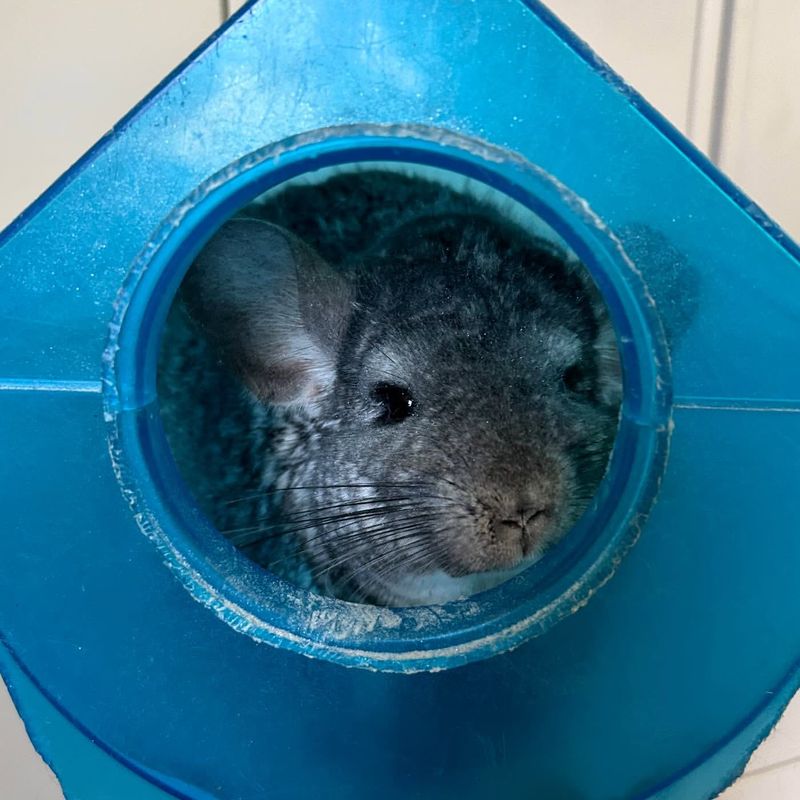
Chinchillas have a unique way of keeping clean: dust baths! Unlike other pets, they don’t bathe in water, as it can harm their dense fur. Instead, they roll in special chinchilla dust that absorbs oils and dirt.
Offer a dust bath two to three times a week, using a shallow container filled with chinchilla dust. Watch as they joyfully roll and flip, ensuring their fur stays fluffy and clean. The dust should be free from moisture and replaced regularly to maintain hygiene.
4. Provide A Spacious Cage
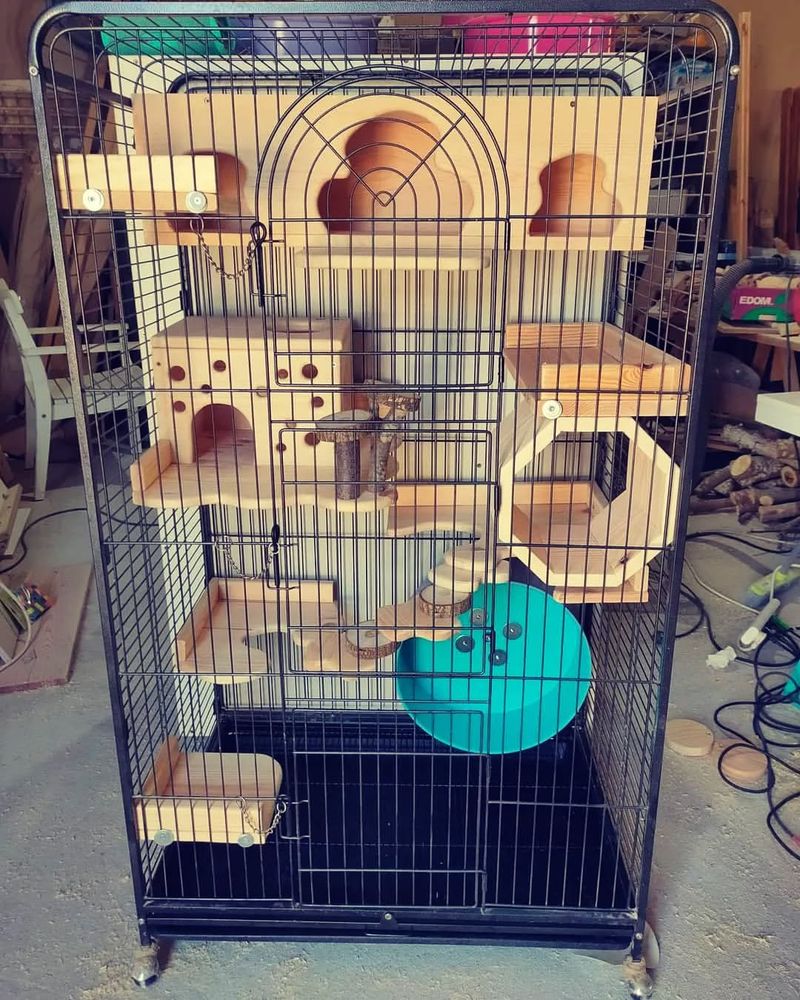
Creating a comfortable and spacious environment for your chinchilla is the first step in proper care. Chinchillas are active creatures and need ample room to hop around and explore. A multi-level cage with ramps and hiding spots is ideal, as it allows them to exercise and exhibit natural behaviors.
When selecting a cage, ensure it’s made of metal or another chew-proof material. Chinchillas love to chew, and a wooden cage won’t last long. The bars should be closely spaced to prevent any escape attempts. Remember, a happy chinchilla is an active chinchilla!
5. Routine Health Check-Ups
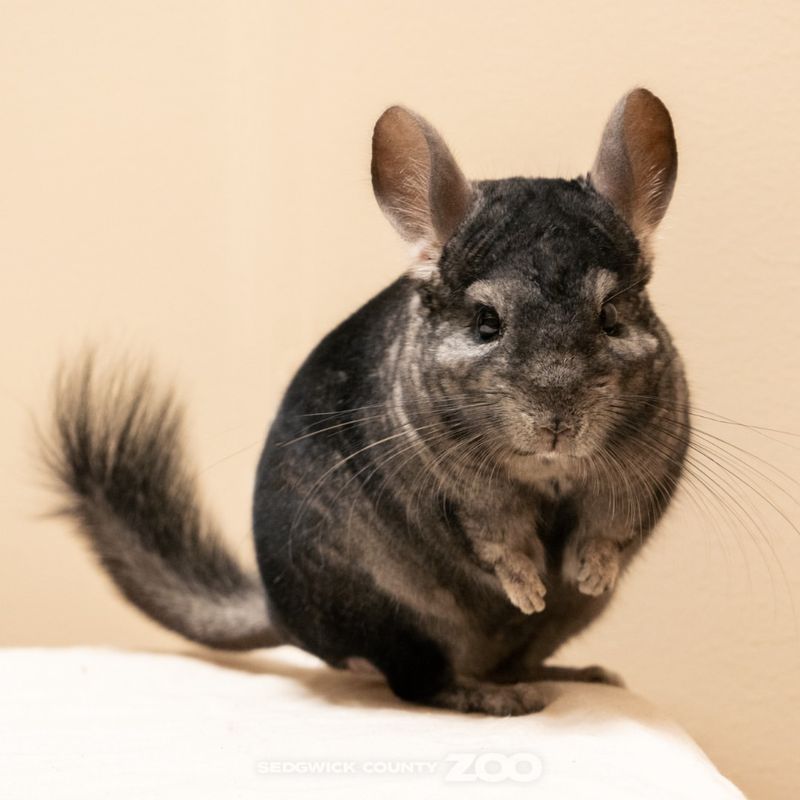
Regular vet visits are essential to ensure your chinchilla’s well-being. A vet specializing in exotic pets will know the specific needs and potential health issues of chinchillas. Schedule annual check-ups and consult your vet if you notice any signs of illness.
Keep an eye out for symptoms like lethargy, weight loss, or changes in eating habits. Early detection of health issues can lead to timely treatment and a better prognosis.
6. Safe And Chewable Toys
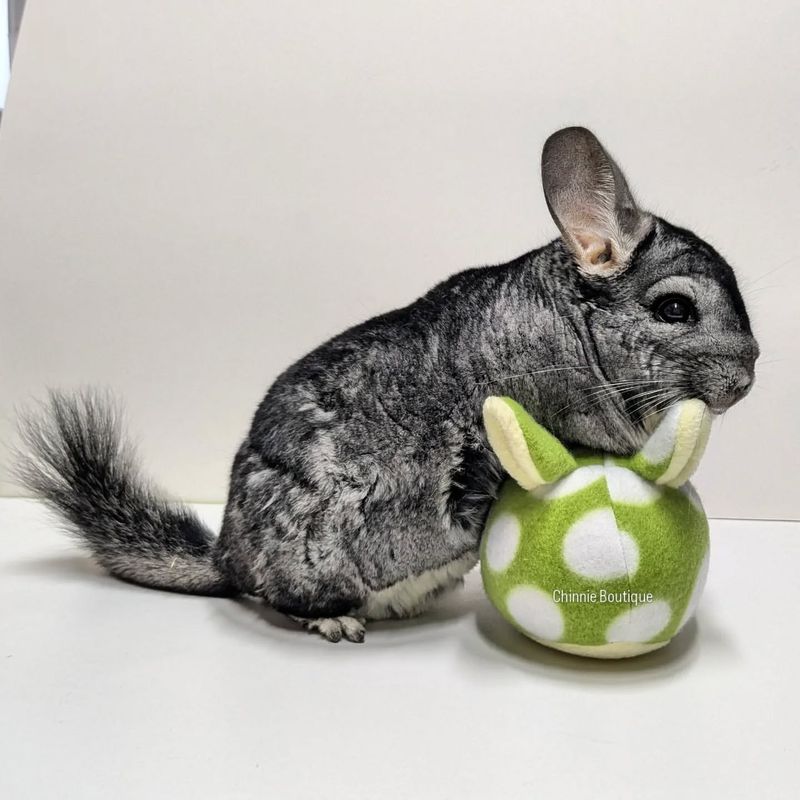
Toys play a vital role in a chinchilla’s life, providing both mental and physical stimulation. Chinchillas need to chew to keep their teeth healthy, so providing safe, chewable toys is essential.
Look for toys made of natural, non-toxic materials like untreated wood or pumice stones. These help in wearing down their teeth and prevent boredom. Rotate toys regularly to keep their environment engaging and exciting.
7. Daily Interaction And Socialization
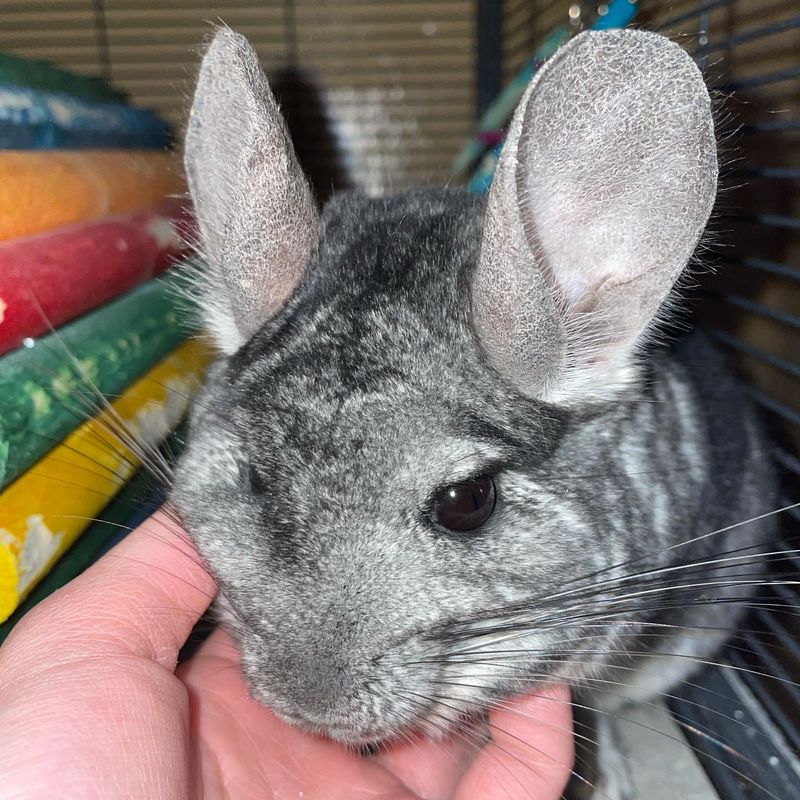
Building a strong bond with your chinchilla involves daily interaction and socialization. These curious creatures thrive on attention and enjoy spending time with their owners. Handling them gently and regularly helps in fostering trust and affection.
Create a routine that includes playtime outside the cage, allowing your chinchilla to explore in a safe, supervised environment. Use this time to teach them simple tricks or offer gentle pets and cuddles.
8. Temperature Control And Comfort
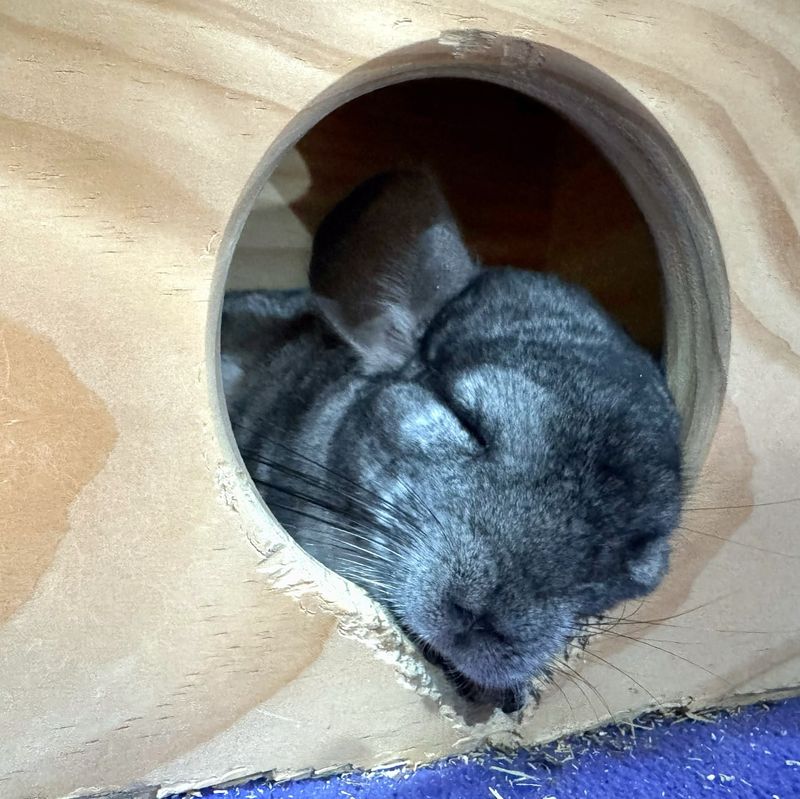
Chinchillas are sensitive to temperature changes, so maintaining a stable environment is crucial. The ideal room temperature should be between 60°F to 70°F (15°C to 21°C). Avoid placing the cage in direct sunlight or near heat sources.
Overheating can lead to heatstroke, a serious condition that requires immediate attention. Ensure proper ventilation in the room, but avoid drafts. You may use fans or air conditioning to maintain a comfortable climate.
9. Avoid Overheating
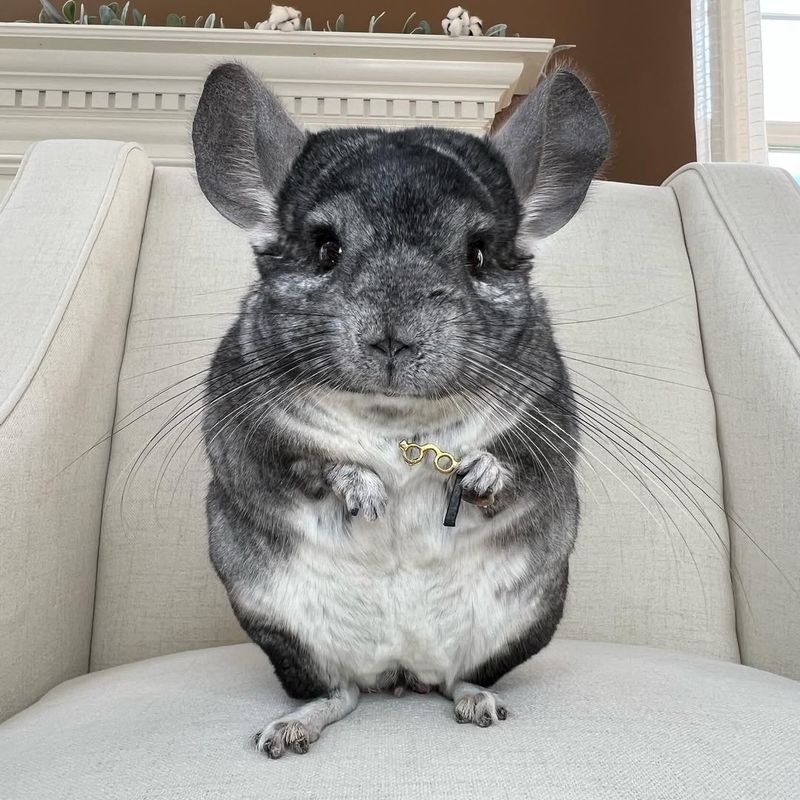
Chinchillas are highly sensitive to heat, and their dense fur coat, which is perfect for cooler climates, can make them prone to overheating in warm environments. Temperatures above 80°F (27°C) can be dangerous for them, leading to heatstroke or other health issues.
To ensure your chinchilla’s safety, keep their living area in a cool, well-ventilated space, away from direct sunlight or heat sources like radiators or vents. Air conditioning or fans can help regulate the temperature, but be cautious of drafts.
10. Hygienic Living Environment
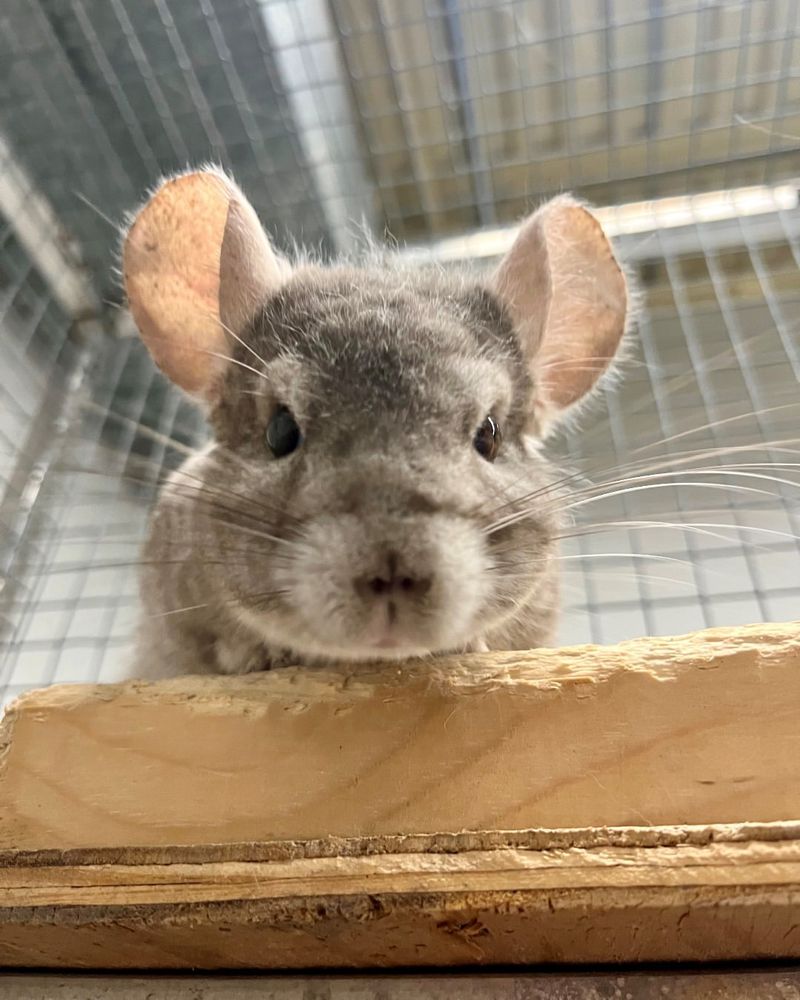
Maintaining a clean habitat is vital for your chinchilla’s health. Regular cleaning prevents the buildup of waste and bacteria, reducing the risk of infections. Spot clean the cage daily, removing soiled bedding and uneaten food.
A deep clean should be performed weekly, including washing the cage and accessories with pet-safe disinfectants. Ensure everything is dry before returning your chinchilla to its home. Proper hygiene also involves washing food and water containers regularly.
11. Understanding Chinchilla Behavior
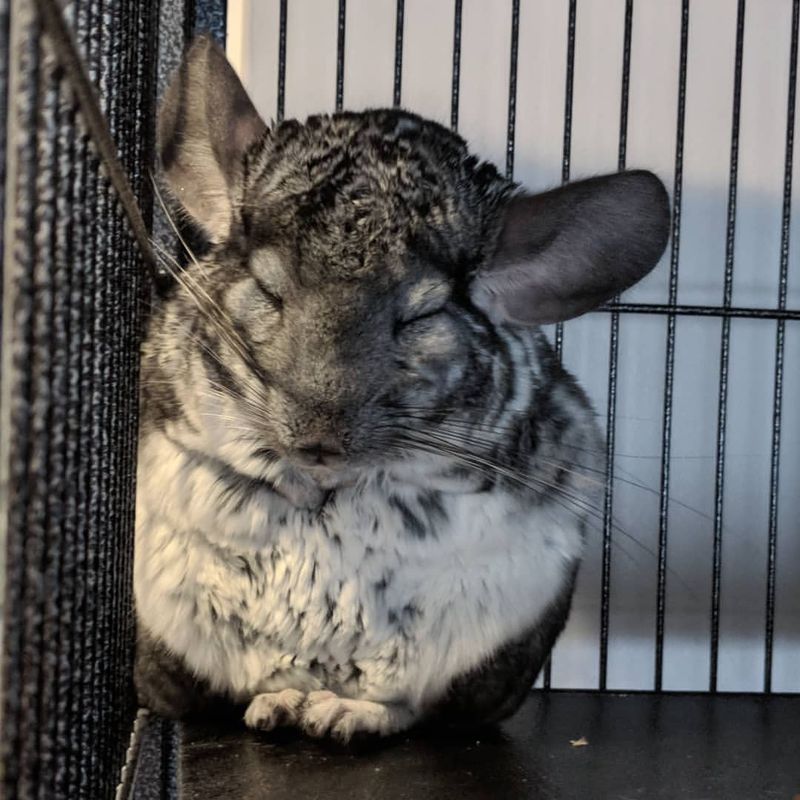
Understanding your chinchilla’s behavior is key to providing proper care. Chinchillas communicate through body language, sounds, and activities. Recognizing these signals helps in building a strong, trusting relationship.
Observe their movements and vocalizations to gauge their mood. Chinchillas may squeak in delight or chatter their teeth to express comfort. If you notice signs of stress, such as fur biting or excessive hiding, it’s crucial to identify and address the cause.
12. Tailored Exercise Routine
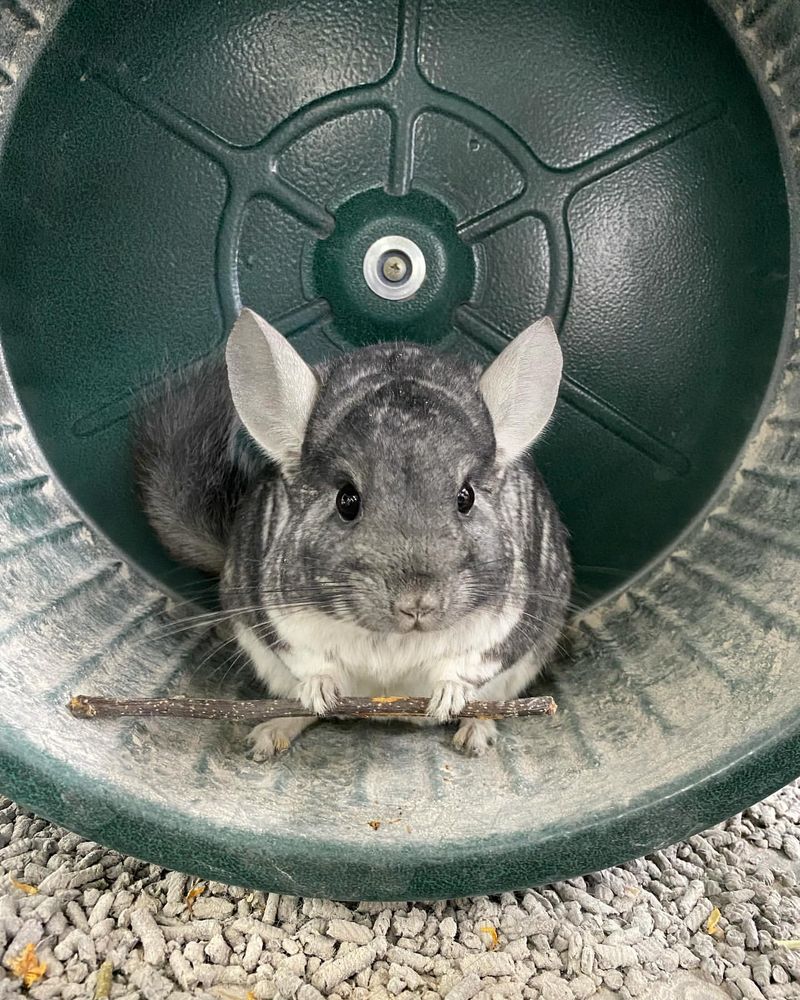
Exercise is an essential part of chinchilla care, helping to maintain their physical and mental health. A tailored exercise routine keeps your pet active and engaged.
Include activities like running on an exercise wheel or supervised playtime outside the cage. Ensure the wheel is solid-surfaced to prevent injury. Allow them to explore in a safe, chinchilla-proofed area, removing any potential hazards.
13. Stress-Free Environment
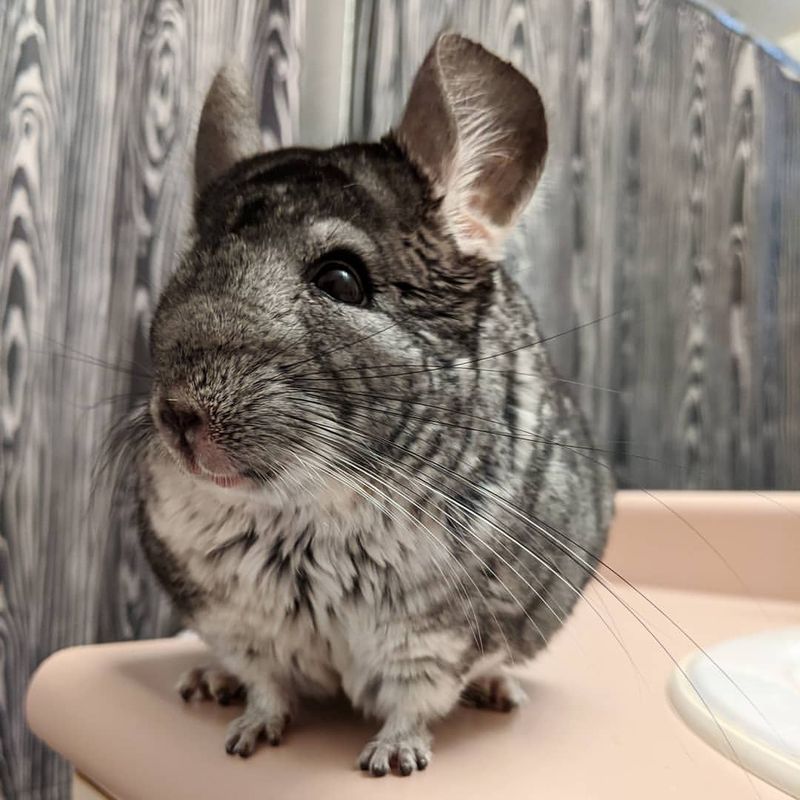
Creating a stress-free environment is vital for your chinchilla’s well-being. These sensitive animals thrive in calm, quiet settings. Avoid loud noises and sudden changes that may startle them.
Provide a cozy hideaway within their cage where they can retreat when feeling anxious. Soft, gentle lighting and soothing sounds can also help in creating a serene atmosphere.
Spend time observing your chinchilla to understand what makes them comfortable or stressed.
14. Proper Bedding And Substrate
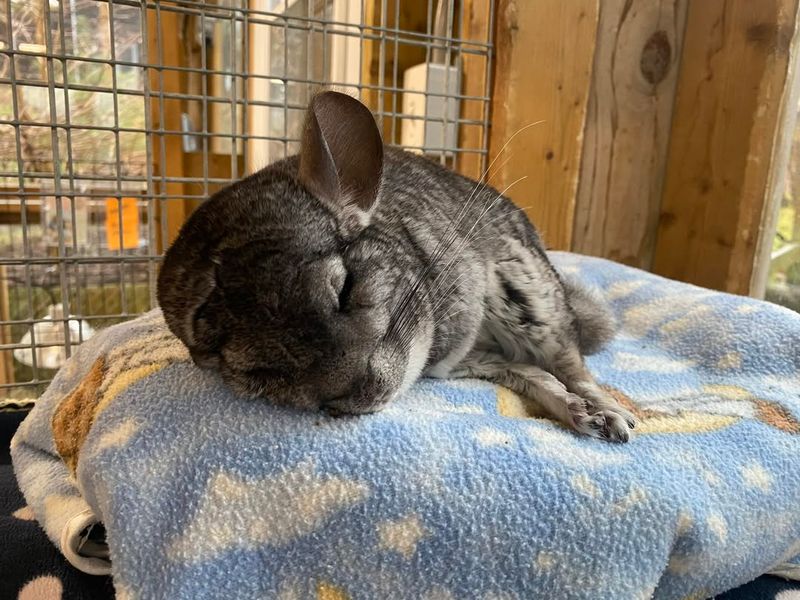
Choosing the right bedding is crucial for your chinchilla’s comfort and health. Opt for soft, absorbent materials like paper-based bedding. Avoid cedar or pine shavings, as they can cause respiratory issues.
Change bedding regularly to maintain cleanliness and reduce odors. The right substrate keeps your chinchilla’s feet comfortable and supports their playful activities.
15. Consistent Feeding Schedule
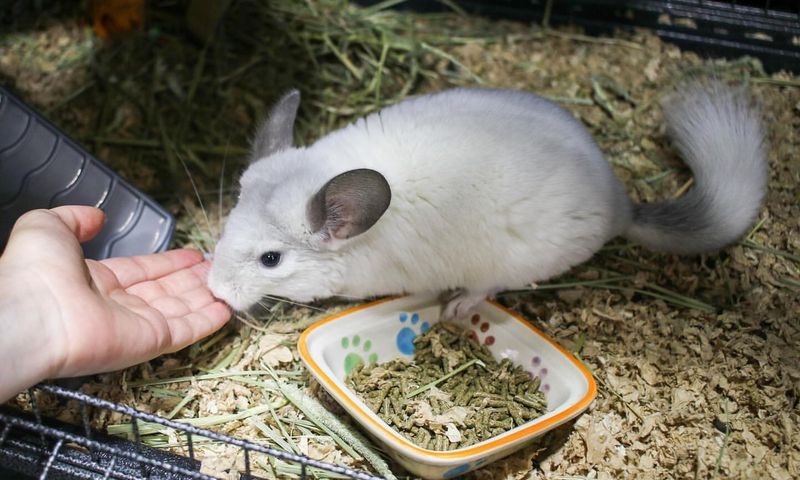
Establishing a consistent feeding schedule is essential for your chinchilla’s routine and well-being. Feed them at the same time each day to help them feel secure and maintain healthy digestion.
Consistency also aids in monitoring their eating habits, allowing for early detection of changes that may indicate health issues. Stick to a balanced diet of pellets, hay, and occasional treats.
16. Provide A Hiding Spot
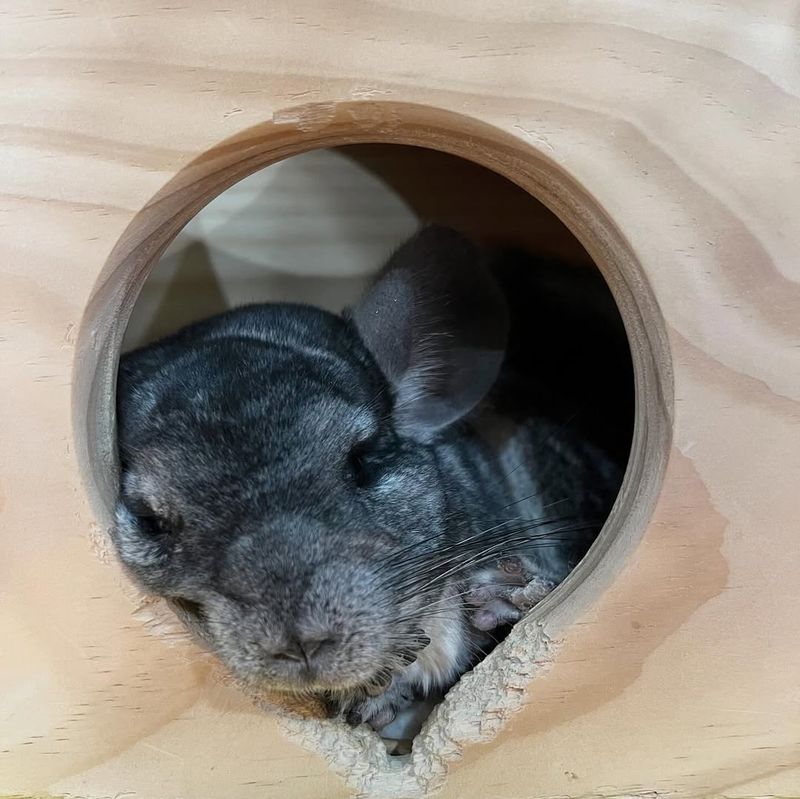
Chinchillas are naturally shy and cautious creatures, and they thrive when given a safe, quiet space to retreat to. Providing a hiding spot in their cage, such as a small hut or tunnel, offers them a sanctuary where they can relax and feel secure.
This is particularly important during moments of stress, like loud noises or the presence of unfamiliar animals. A hiding spot helps reduce anxiety and allows your chinchilla to feel in control of their environment.
17. Chinchilla-Proofing Your Home
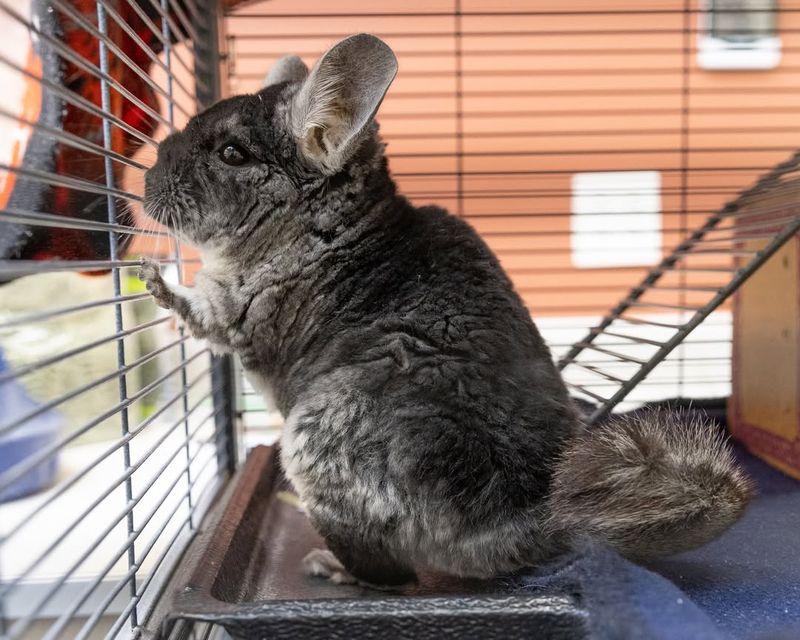
Before letting your chinchilla explore outside the cage, ensure your home is chinchilla-proofed. Remove any potential hazards like electrical cables, toxic plants, or small objects they might ingest.
Secure furniture and block off areas where they might get stuck. Supervision is key during playtime, as chinchillas are curious and quick.
Create a safe, fun space with plenty of toys and hiding spots.


